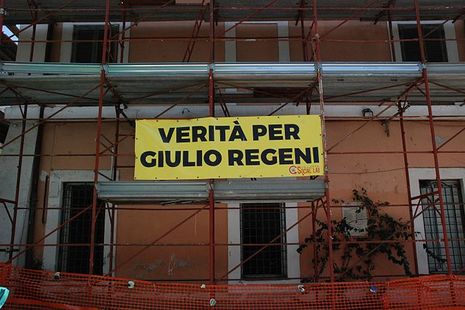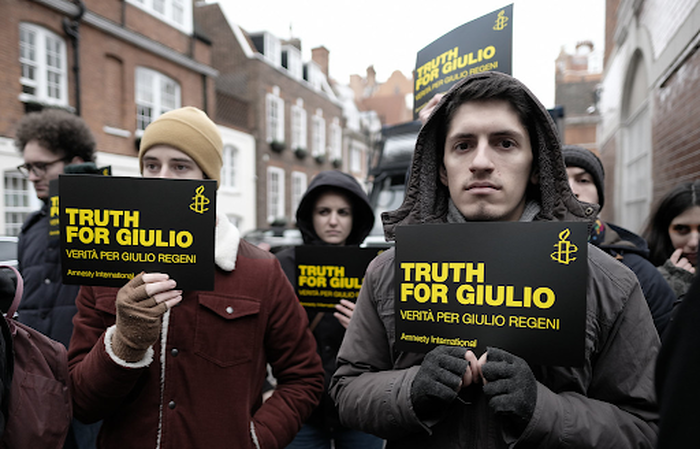Trial suspended for security agents accused of killing Giulio Regeni
The trial- which began yesterday- has been suspended due to concerns the accused were unaware that they’d been charged

Content Note: This article contains a brief mention of graphic physical injury.
The trial has been suspended for the four Egyptian security officers accused of kidnapping and killing 28-year old Cambridge PhD student Giulio Regeni. The trial began yesterday, but has been halted amid concerns that the accused were unaware of the charges.
Regeni was found dead in a ditch five and half years ago in Cairo, where he had travelled to carry out research into trade unions and the Egyptian economy. His body carried signs of burning, beating and mutilation, and an autopsy revealed broken ribs and a brain haemorrhage.
Gen Tariq Saber, Col Aser Ibrahim, Capt Hesham Helmi, and Maj Magdi Abd al-Sharif were expected to be accused of the “aggravated kidnapping” of Regeni. Sharif was additionally charged with “conspiracy to commit aggravated murder”, a charge which could lead to a life sentence in Italy. But Judge Antonella Capri ruled in favour of defence, who argued that the trial would be void without evidence that the four had knowledge of the case against them.
The case will now return to a preliminary court.
With Egypt refusing to acknowledge the trial, it was due to take place in absentia. The country closed its own investigation last year concluding that “the perpetrator of the student’s murder remains unknown”. They rejected requests to supply the addresses of the four men accused, preventing Italian officials from officially informing them of the trial.
The four accused worked as agents for Egypt’s National Security Agency (NSA), which prosecutors have said heavily surveilled Regeni in the months leading up to his death. Regeni was arrested in January 2016 and taken to a police station in Cairo. He was then taken to an NSA facility where he was tortured, according to Italian prosecutors.
Amy Hawthorne, an expert on Egypt at the Project on Middle East Democracy in Washington, told the Guardian that “the trial in Rome had represented a rare moment of accountability for the Egyptian security forces”.
This article was edited on 15/10 to reflect that the trial was suspended.
 News / Clare Hall spent over £500k opposing busway 24 December 2025
News / Clare Hall spent over £500k opposing busway 24 December 2025 News / Caius mourns its tree-mendous loss23 December 2025
News / Caius mourns its tree-mendous loss23 December 2025 Comment / The ‘class’ of Cambridge24 December 2025
Comment / The ‘class’ of Cambridge24 December 2025 Comment / Yes, I’m brown – but I have more important things to say22 December 2025
Comment / Yes, I’m brown – but I have more important things to say22 December 2025 Interviews / Politics, your own way: Tilly Middlehurst on speaking out21 December 2025
Interviews / Politics, your own way: Tilly Middlehurst on speaking out21 December 2025











